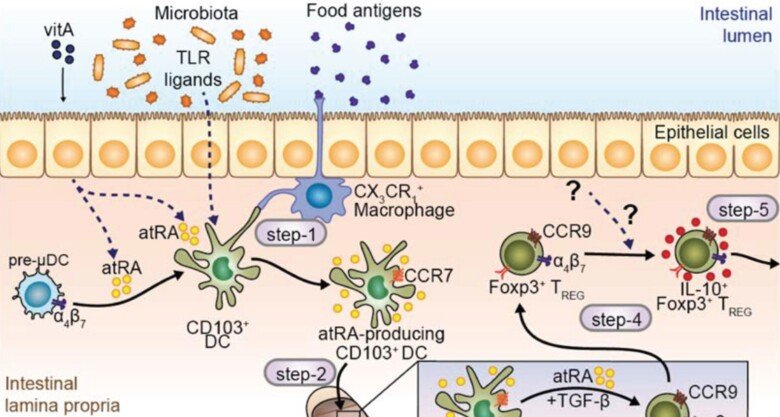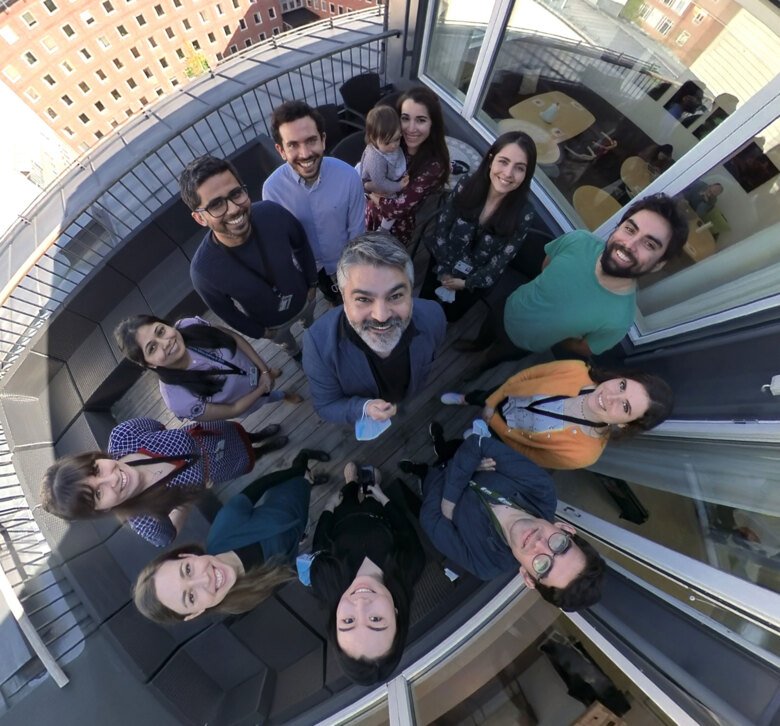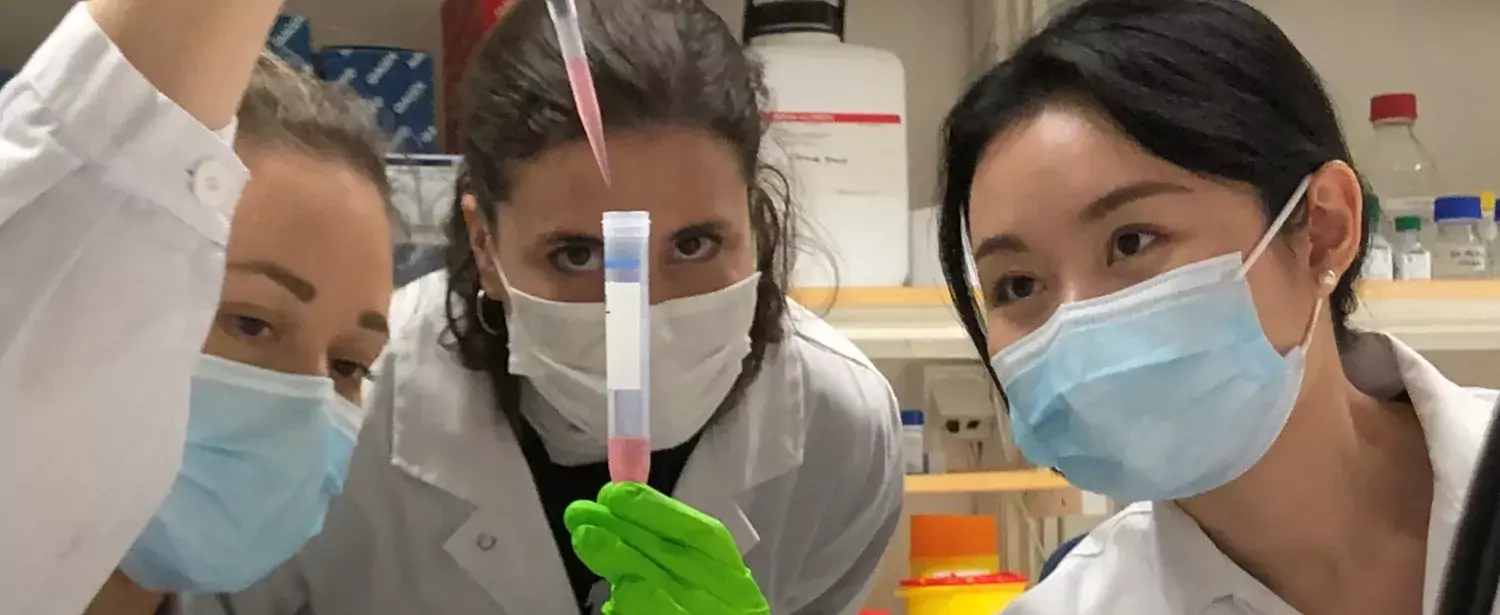Bild ovan: Chiara Sorini, Chiara Zagami och Xinxin Luo i labbet. Foto: Eduardo Villablanca.
Vår forskning
Vår grupp försöker förstå de genetiska, cellulära och miljö-faktorer som bidrar till ökad risk för inflammatorisk tarmsjukdom (IBD). Vi har utvecklat ett forskningsprogram som integrerar cellulär immunologi, bioinformatik och skapandet av nya in vivo-modeller för att i slutändan undersöka funktionen hos IBD-associerade polymorfismer samt för att studera värd-mikrobiota-interaktioner. I synnerhet försöker vi förstå hur avreglering av intestinal immunhomeostas kan leda till IBD och försöker upptäcka funktionen hos IBD-riskgener identifierade av Genome Wide Association Studies (GWAS).
För att upptäcka funktionen hos IBD-riskgener fokuserar vi på biologiska processer som är involverade vid initieringen (priming av adaptiva immunsvar), progression (kronisk inflammation) eller upplösning (vävnadsreparation) av IBD. För att översätta genetiska mutationer till funktion har vi utvecklat en innovativ pipeline som integrerar bioinformatik och djurmodeller, inklusive zebrafisk och mus, för att slutligen validera kandidatmutationer i mänskliga vävnader med hjälp av organoider. Vi strävar efter att förändra det sätt på vilket gen-miljö-interaktioner för närvarande undersöks.

Pågående forskningsprojekt
- Characterization of UC1 and UC2 patients; towards precision medicine in UC.
- Defining the cellular and molecular architecture of intestinal regeneration following acute inflammation.
- Uncoupling cellular and molecular mechanisms of intestinal regeneration and tumorigenesis.
- Using zebrafish to study the impact of gene-environment interaction in inflammatory bowel diseases.
- Regulation of Intestinal immunity and response to pathogens by dietary-derived nuclear receptor ligands.
- Generation of the spatial transcriptomic atlas of the murine GI tract in health and disease.


